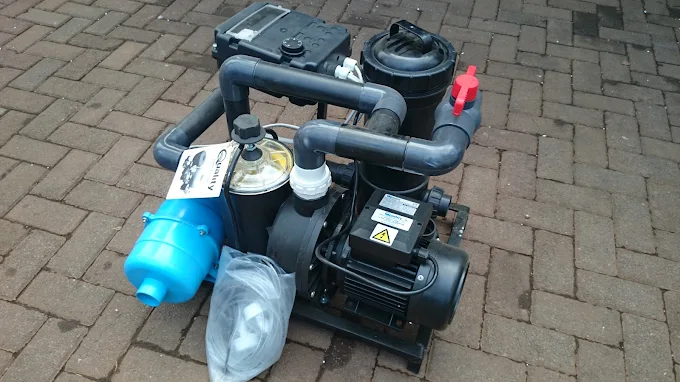
If you have mild asthma symptoms, managing them effectively is key to staying comfortable and active. While asthma can sometimes feel overwhelming, many people with mild symptoms can live full lives with the right treatment and lifestyle adjustments. Mild asthma symptoms can include occasional coughing, wheezing, shortness of breath, or a tight chest. These symptoms often occur after exercise, exposure to cold air, or during allergy seasons.
Since symptoms are less severe, many people don’t seek treatment until they worsen. However, it’s important to recognize early signs and act quickly. Tracking your symptoms in a journal can help identify when you need to adjust your care plan.
Avoiding Common Triggers
For mild asthma, one of the best things you can do is identify and avoid your asthma triggers. These might include dust, mold, smoke, pet dander, or pollen. You may also be sensitive to cold air, air pollution, or strong smells.
If you’re unsure what’s triggering your symptoms, an allergy test in Fresno or a visit to an allergy doctor in Merced can help pinpoint the exact causes. Avoiding triggers is one of the most effective ways to reduce the frequency and severity of asthma symptoms.
Managing Symptoms with Medication
Even if your asthma symptoms are mild, medication can still play a big role in preventing flare-ups. For some people, a rescue inhaler is enough. This quick-relief medicine helps open the airways during an attack, allowing you to breathe more easily.
If your symptoms are mild but occur frequently, your doctor may suggest a daily, long-term control medicine. These medications reduce inflammation in the airways, making it less likely that you’ll experience symptoms. Asthma medications can be adjusted to meet your needs, so it’s important to follow your doctor’s advice and keep regular checkups.
Using an Asthma Inhaler Properly
Using an asthma inhaler correctly is crucial to managing mild symptoms. Whether you’re using a rescue inhaler or a controller medication, make sure you’re following the right technique.
If you’re unsure how to use your inhaler, ask your doctor or pharmacist for a demonstration. Incorrect usage can reduce the effectiveness of your medication and may lead to more flare-ups. Remember to always carry your inhaler with you, especially when you’re exercising or in environments where triggers might be present.
Stay Active with Caution
Mild asthma symptoms often don’t stop people from staying active. However, it’s important to pay attention to your body and adjust as needed. Exercise can sometimes trigger symptoms, but staying active is important for your overall health.
Before exercising, use your inhaler if prescribed, and warm up to help prevent symptoms. If cold air is a trigger, try exercising indoors or wear a scarf over your nose to warm up the air you breathe. Staying consistent with your exercise routine can help improve lung function and reduce symptoms over time.
Making Lifestyle Adjustments
Sometimes, small changes in your daily routine can make a big difference in controlling mild asthma symptoms. Here are a few tips:
- Keep your home clean and dust-free.
- Use air purifiers to reduce allergens in your environment.
- Avoid smoking or being around secondhand smoke.
- Wash your bedding regularly to reduce dust mites.
- Limit exposure to pet dander, especially in the bedroom.
These lifestyle changes can help reduce your need for medication and lower the likelihood of flare-ups.
Visit Your Doctor for Regular Checkups
Even if your asthma is mild, regular visits to your doctor are important. An allergy doctor in Merced or an allergist in Fresno can help you track your symptoms and adjust your asthma treatment as needed. Your doctor may also suggest periodic tests, such as lung function tests, to make sure your symptoms remain under control.
If your symptoms become more frequent or intense, don’t wait for them to get worse. Call your doctor to discuss changes in your treatment plan. They can help you stay on top of your condition and ensure your medications are working effectively.
Be Prepared for Emergencies
Even with mild asthma symptoms, it’s important to be prepared for the unexpected. Keep your rescue inhaler with you at all times, and make sure your family and friends know how to help if you have an asthma attack.
If your symptoms worsen and a rescue inhaler doesn’t help, seek immediate medical attention. Having a written action plan for emergencies is a good idea, so you know exactly what to do in case of an asthma attack.
Conclusion
Managing mild asthma symptoms doesn’t have to be complicated. By identifying your asthma triggers, using medication as prescribed, and making a few lifestyle changes, you can stay active and healthy. Remember, asthma is manageable, and with the right treatment plan, you can live a full life without constant worry.
For personalized care, consider visiting an allergy doctor in Fresno or an allergist in Merced. They can help you find the best approach for managing your mild asthma and improving your quality of life.





